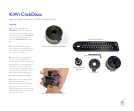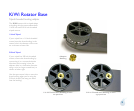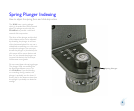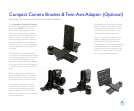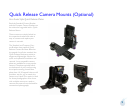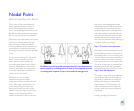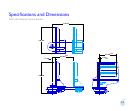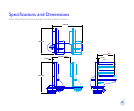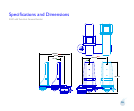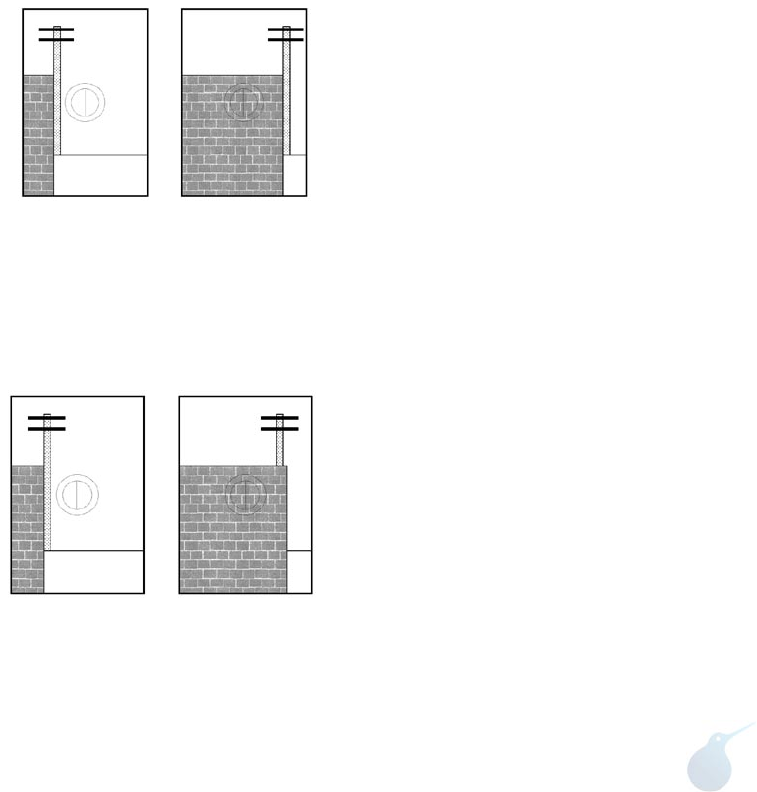
Nodal Point (continued)
viewfinder, find another vertical edge
or line that is far away, such as another
building or telephone pole. Align the
two objects and rotate the pan head
so they are in the left hand side of the
viewfinder.
Rotate the pan head so the two
objects move over to the right hand
side of the viewfinder. Unless you’ve
managed to unwittingly locate the right
position, you should notice the two
objects will move with respect to each
other as you rotate the pan from left
to right. Slide the camera to the front
or rear as required to eliminate this
relative movement.
Step 3: Record Your Results
After you’ve discovered the two
location dimensions, be sure to record
the settings. The KiWi has convenient
indicator scales for this purpose.
These numbers represent the nodal
point for this given camera and lens
combination. If you change cameras or
lenses, this procedure may have to be
repeated
Step 5: How About Rangefinder
Cameras?
A rangefinder camera is a camera
If, as shown above, the two objects move with respect to one
and another in the viewinder, slide the camera fore or aft in
order to eliminate this movement. Here, the telephone pole
has moved behind the brick wall.
where you look through a separate
viewfinder and not through the actual
lens. The process is basically the same.
Locate the Side-to-Side adjustment as
discussed in Step 1. When it comes to
the Fore-Aft adjustment, you won’t be
able to look through the viewfinder
to determine the proper setting since
the viewfinder is a separate optical
path that doesn’t really “see” the same
image as the film.
Instead, you’ll have to start with the
bracket all the way to the front and
take pairs of test shots. Each pair will
have the vertically aligned objects
in the left and then the right side
of the viewfinder. After each pair of
photos, slide the bracket rearward and
repeat the process. Slide the bracket
the same increment each time (i.e.
10mm). Be sure to record the scale
setting for each pair of images. Process
the film, or in the case of digital
cameras, download the images to your
computer.
At the end of this process you will be
able locate the pair of images with the
least relative movement. If no single
image is optimum, you may need to
interpolate between two images to
find the closest value.
What is it and how do I find it?
Looking through the viewfinder align a close object (brick wall)
with a faraway object (telephone pole). As you rotate the camera
from side-to-side there should be no relative movement between
the two objects as shown to the right.
11




